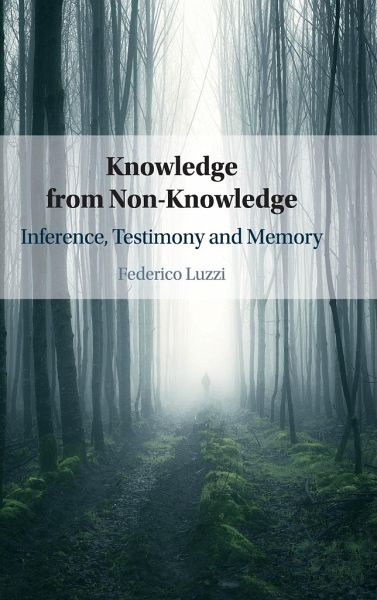
Knowledge from Non-Knowledge
Versandkostenfrei!
Versandfertig in 1-2 Wochen
103,99 €
inkl. MwSt.
Weitere Ausgaben:

PAYBACK Punkte
52 °P sammeln!
Challenges the idea that knowledge of a conclusion requires knowledge of essential premises, a widely accepted concept in epistemology.



